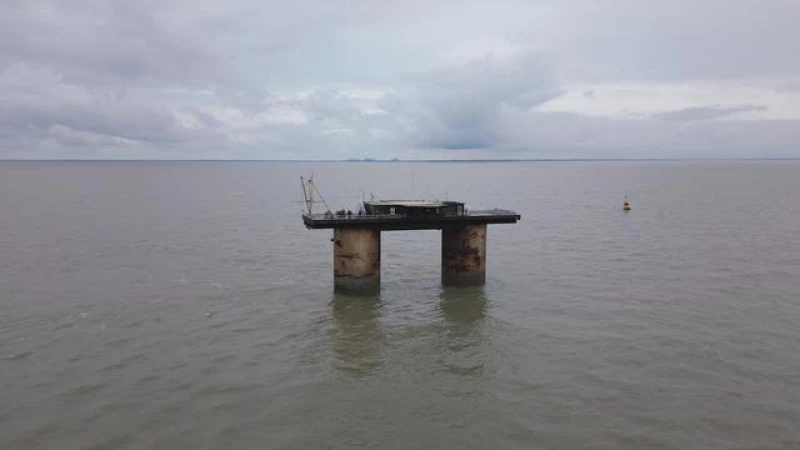Sealand: The World's Smallest State
OK, name that country: It's planted opposite Europe, sitting proudly on the other side of the North Sea. It's a monarchy that features its own currency, postage stamps, constitution, national anthem, love of tea and a pair of handsome princes, born two years apart. We speak of… Sealand. A crumb of real estate off the English coast that declared its independence in 1967, Sealand has a full-time population of… one. It has a land mass the size of…. roughly two tennis courts. Its leading export might be… the national mythology, a history of piracy, coups, countercoups, rogues and off-shore Internet schemes. It may make tiny Lichtenstein look like China by comparison. But by rights, Sealand is a sovereign nation. Join us, as we compile some notes from a truly small island.
Prince Michael: We can see Sealand over there, by the way, now. You see that?
Jon Wertheim: Oh, there she is.
Prince Michael: Yeah, yeah. On the starboard bow.
Behold, the world's smallest state… It's a micronation in the extreme, a principality which sits—or stands—only seven miles off the coast of England… Its self-described reigning monarch is this guy, Prince Michael Bates.
Jon Wertheim: Here we are.
Prince Michael: Yep.
Jon Wertheim: A platform and a couple of concrete husks. And--
Prince Michael: Yeah.
Jon Wertheim: --this is a state.
Prince Michael: Yep.
Enter some countries, you arrive in style; here you arrive in what's basically a backyard swing hoisted by a crank 60 feet above the North Sea. And if you're wondering about the safety regulations... yeah, us too… then again, when you are a sovereign nation you—by definition—set your own rules.
Jon Wertheim: That's a helluva way to get into a country
Prince Michael: The only way to travel.
On the plus side, there's no long line at the arrival's hall.
Jon Wertheim: I'm following you to passport control.
Mike Barrington fills various roles and positions on Sealand… right now it's immigration and customs. He also happens to be the only permanent resident.
Mike Barrington: There you are, sir.
Jon Wertheim: So now I'm official.
Mike Barrington: You are. Welcome to Sealand--
It wasn't always named Sealand… and it was never intended to be a country. Originally called His Majesty's Roughs Tower, it was a hastily-constructed nautical fort—one of several the British set up in the North Sea during World War II. Equipped with anti-aircraft artillery, these forts were designed to prevent German bombing raids on London. During the War, more than a hundred Royal Marines were crammed into these towers for months on end.
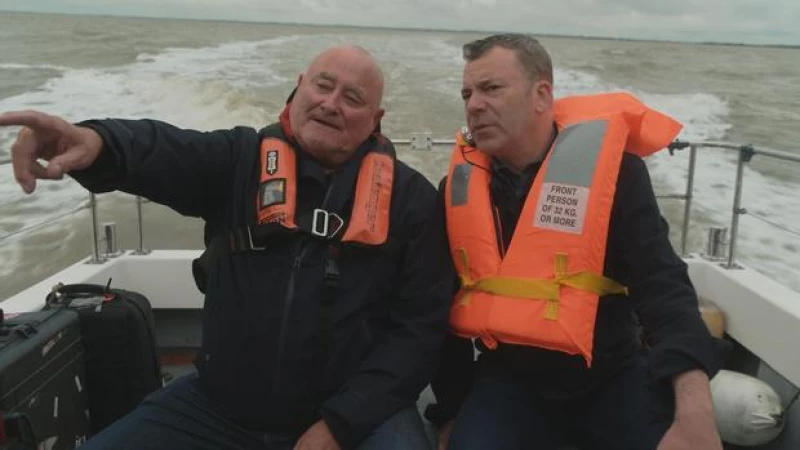
Descending the seven-story towers, it feels—and smells—like a cross between a treehouse and a diesel-soaked submarine.
First up… the first-class bedroom suite.
Jon Wertheim: It's a nice one.
Prince Michael: Yeah. Nice TV.
Our claustrophobic tour continued downward.
Jon Wertheim: Now we're-- we're-- we're under water at this point. So we still got a couple floors to go--
Prince Michael: Yeah, you hear ships going past. You hear the propellers going p-- going round. Ding, ding, ding, ding.
Like many countries… there's a national cathedral.
Prince Michael: You have freedom of worship in Sealand. I think there's even the Quran here somewhere.
On the bottom floor… the jail.
Prince Michael: Two days in the brig.
Jon Wertheim: Wow.
Prince Michael: Bread and water.
Jon Wertheim: I have to look at the Sealand Constitution and see what my rights are.
Prince Michael: Very limited. (laughter)
If you're wondering by now how this concrete island constitutes a country... stick with us here.
Back in the 1960s, these same waters played host to the burgeoning unlicensed commercial radio business that operated on ships and old forts… what the British government called "pirate radio."
During the era of the Beatles, the Rolling Stones, and the Kinks, the BBC had a monopoly on broadcasting in Britain and only gave rock bands one hour of airtime per week. As a result, millions of younger people in Britain turned to pirate radio stations for their music. In 1965, Roy Bates, an enterprising World War II veteran, took over a fort where one of these pirate stations operated and established Britain's first 24-hour outfit called Radio Essex. However, the British government passed a law making pirate radio stations illegal, and Bates was forced to shut down. Undeterred, Bates seized another fort, Roughs Tower, outside of UK territorial waters, and on September 2nd, 1967, declared it an independent state called Sealand, making himself its prince as a romantic gesture to his wife Joan on her birthday.
Source: Prince Michael: He just would not back down. Jon Wertheim: Form of surrender if he had said, "You know what? I'm out" Prince Michael: He wouldn't know that word: "surrender," I mean-- (laugh) no.
Jon Wertheim: In addition to taking you out to dinner, I'm gonna make you a princess." (laugh)
Prince Michael: Well, he didn't take her out to dinner, but he did-- he made her a princess, yeah.
Prince Roy and Princess Joan, along with their two children Michael and Penny, set up home on Sealand… the sheer novelty of their lifestyle was a constant source of amusement on the mainland. This newsreel is from 1969.
Newsreel from 1969: "The start of another day, even for the new royals… is no different than for millions of others… the request for a common cuppa…"
Interviewer: Mrs. Bates, how is it possible to keep looking glamorous in conditions like these?
Joan Bates: It's no more difficult than anywhere else in the world… We're quite comfortable here, I've got all the things that I want.. Makeup, brushes and things.
At age 16, Penny was less convinced.
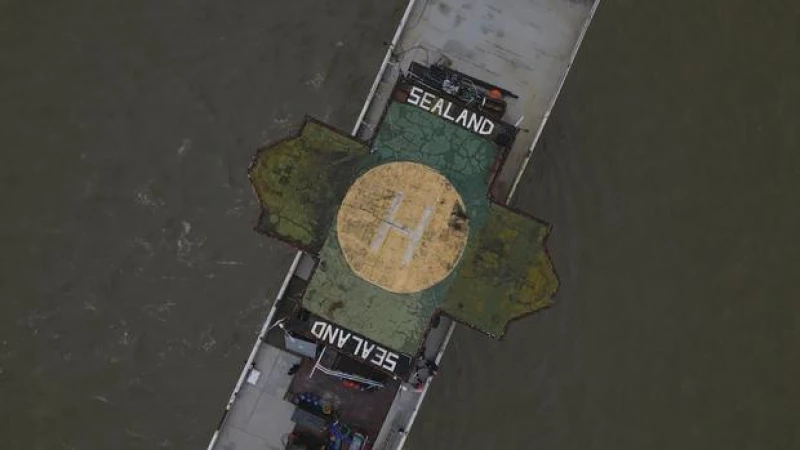
Princess Penny Hawker: It was freezing cold, and it had no electricity. To flush a toilet you'd have to chuck a bucket over the side, drop it down about 80 feet, pull it up, and flush the toilet--
Jon Wertheim: That was your toilet?
Princess Penny Hawker: Yes.
The Ambitious Bates Family and the Creation of Sealand
In their pursuit of turning Sealand into a tax haven, luxury island, and casino, the Bates family went all-in on establishing the trappings of statehood. They designed a flag, stamps, currency, an anthem, and even a national motto: E mare libertas, which translates to "From the Sea, Freedom."
During their teenage years, Michael and Penny Bates spent months on Sealand, defending the island from rival invasions and pirate attacks. They would fire warning shots and throw Molotov cocktails overboard to protect their territory.
Princess Penny Hawker recalls an incident where the press took photographs and her father scolded her for holding a gun incorrectly. She admits that upon looking at the picture, her gun-handling was indeed dreadful.
Despite firmly establishing themselves on Sealand, the Bates family continued to be a nuisance to the British government. In response, a team of royal engineers detonated a similar North Sea fort as a warning.
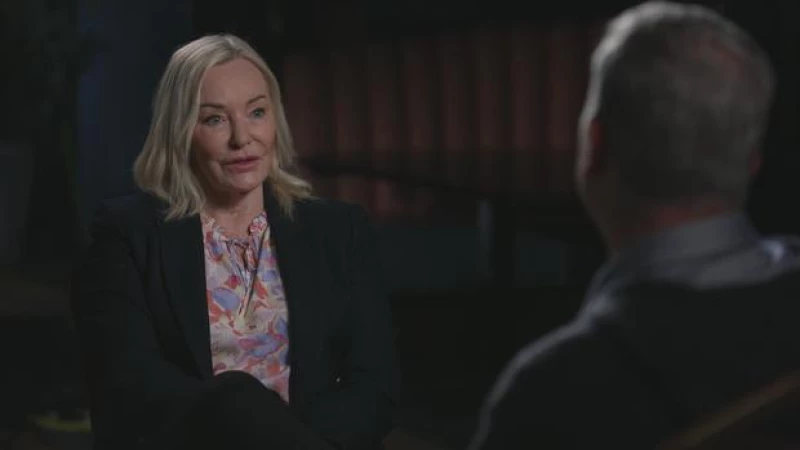
Prince Michael shared declassified plans from the British Ministry of Defence, revealing their intention to forcefully seize control of Sealand.
Prince Michael: The following units are to be available to the execution of the operation. "Royal Navy Two Wessex 5 helicopters "Crafts from HM Naval Base Chatham, Portsmouth Midway, and a clearance diving team." (laugh) It's crazy, isn't it?
But it wasn't just the British government that wanted to dislodge the family. In August 1978, a band of rogue German and Dutch lawyers and diamond merchants launched a coup d'état… with designs of founding their own off-shore casino… they arrived by helicopter with a film crew in tow… taking Prince Michael by surprise—and then roughing him up.
Prince Michael: they tied my elbows together, my knees together, my feet together, my hands down to my knees. And they picked me up, and one said to the other in German, "Let's chuck this bastard over the side. He's too much trouble."
Jon Wertheim: And you're a full-on political prisoner right now.
Prince Michael: Yeah.
Sealand had fallen… after three days Michael was released. Did Michael and his father then return via helicopter, fully armed and flanked by a group of bruisers to stage a successful countercoup? Yes. Yes, they did.
Prince Michael: I jump, and landed crash in the middle of the Germans. sawed-off shotgun hit the deck, boom, and all the Germans went like that.
Jon Wertheim: They surrender. That's it.
Jon Wertheim: You've-- you've reclaimed your principality.
After being disarmed, the plotters were released, with the exception of one individual named Putz. Putz was assigned to clean the bathroom, make coffee, and was fined $37,000 for treason. This incident caught the attention of a German diplomat who visited Sealand.
During an interview, Jon Wertheim questioned the implications of having German emissaries negotiate the release of the prisoner, suggesting that it indicated Sealand's recognition as a state. Prince Michael confirmed this, stating that it was de facto recognition.
The diplomatic visit was significant for the Bates family, as it fulfilled one of the four requirements for statehood outlined in an international treaty from the 1930s. Sealand had already met the other criteria, including having a government, a defined territory, and a permanent population, thanks to Michael Barrington.
When asked about his role, Mike Barrington mentioned that he primarily worked on engineering tasks and was in charge of homeland security. He also revealed that Sealand was prepared to defend itself against the British government or any other entity that attempted to take over their country.
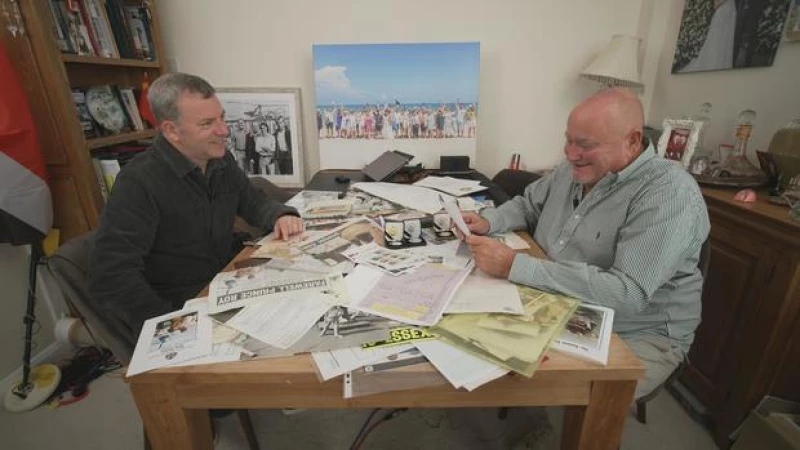
When Jon Wertheim inquired about the potential use of weapons, Mike Barrington confirmed that they would not hesitate to use them if necessary.
Sealand, the self-proclaimed micronation located on an offshore platform, has found unique ways to sustain itself in recent years. Originally known for its pirate radio operations, the Bates family, who are the rulers of Sealand, adapted to the modern era by partnering with internet entrepreneurs in the early 2000s. These entrepreneurs invested millions with the intention of transforming Sealand into an offshore data haven. During a tour of the old server room, Prince James, the son of Prince Michael, shared some insights into the family's past endeavors.
According to Prince James, Sealand used to run gambling and porn sites, catering to dubious individuals who approached them with various requests. However, there were limits to what they were willing to do. For instance, an organ transplant company approached them with a proposal to host their operations on Sealand, but Prince Michael was firmly against it. Gambling and porn were acceptable, but harvesting human organs crossed the line.
Despite the failed venture of turning Sealand into an offshore data haven, the Bates family continues to leverage the power of the internet. They generate revenue through the online sale of noble titles, although the exact figures regarding the national debt and budget remain undisclosed. For a price of $30,600, individuals can become a Lord or Lady, while a higher payment will grant them the title of Sealand Duke or Duchess.
Prince Liam, the younger brother of Prince James, explains that the purchase of these titles holds different meanings for different people. Some view it as an act of political defiance, while others are drawn to the love story that runs through Sealand's history or the underdog narrative of David versus Goliath.
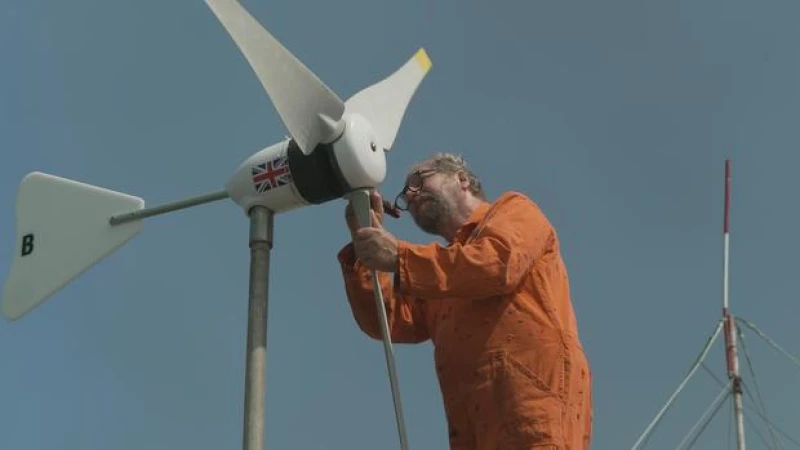
Source: CBS News
Sealand, the national myth, has grown far beyond its own borders. The House of Bates, once ruled by Roy and Joan, now resides in the small English resort town of South-End-on-Sea. Princes James and Liam are engaged in the cockle harvesting business, while Princess Penny runs a nearby botox clinic. Prince Michael, who married Princess Mae Shi, a former artillery major in China's People's Liberation Army, seven years ago, remains committed to the royal family's legacy, even six decades after founding their private country.
During an interview with Jon Wertheim, Prince Michael was asked if this is the golden age for Sealand. He responded hopefully.
When asked how he would respond if the British Navy decided to reclaim Sealand, Prince Michael jokingly said that he would invite them in for a nice cup of tea.
Produced by Michael H. Gavshon. Associate producer, Nadim Roberts. Broadcast associate, Elizabeth Germino. Edited by Matthew Lev.

